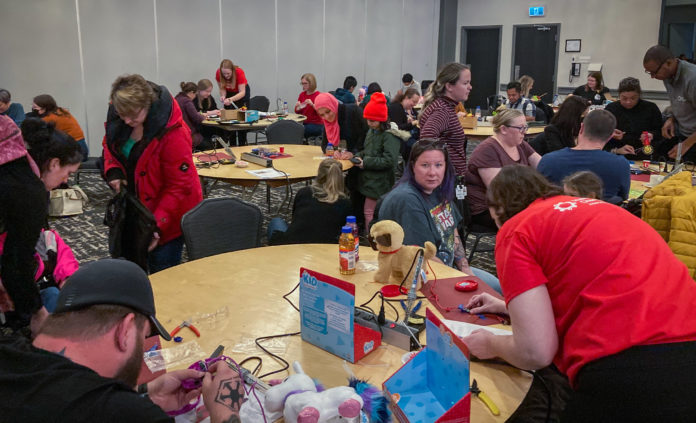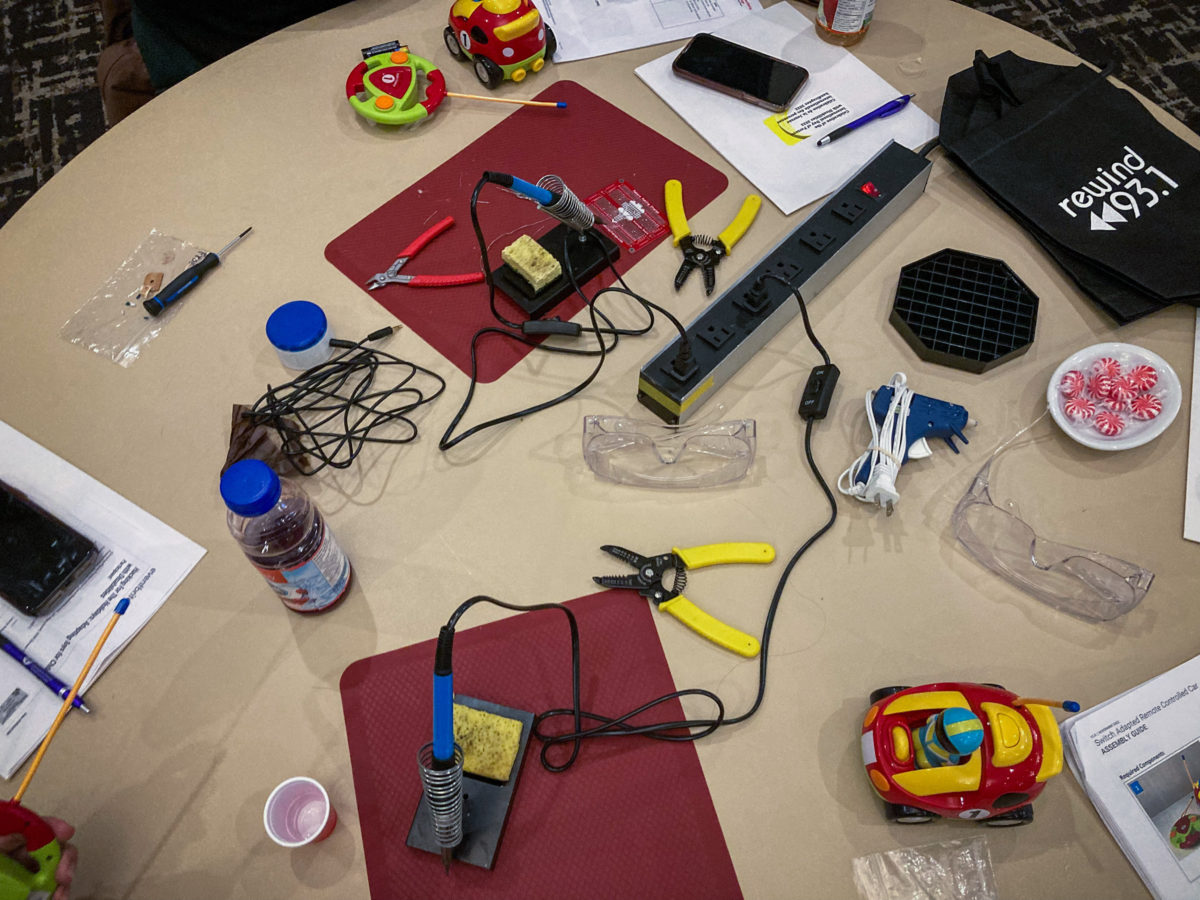

Makers Making Change is making a difference for children with disabilities around the holidays.
The national organization hosted its first toy adapting event, Hacking for the Holidays, in Fredericton on Dec. 2, which aims to create adapted toys for children with disabilities.
The organization began five years ago, offering a library of assistive devices on its website. Families could request the devices and have them mailed to them. Devices ranged from toys to necessary everyday objects with modifications, such as added switches, larger buttons and even 3D-printed devices.
“It’s all about connecting volunteer makers with people with disabilities,” said Courtney Cameron, east region coordinator of Makers Making Change.
Cameron said assistive technology has a markup of about 300 per cent, so modified devices are not affordable for some. They hope to have devices made at the community level to increase affordability, while also starting a conversation on assistive technology to increase accessibility.
Hacking for the Holidays was the first time the organization held a toy-adapting workshop, but Cameron says it is crucial for children with disabilities.
“[It’s] incredibly important for kids to have physical toys to play with,” she said. “How they develop skills, how they learn and just being able to play independently is huge.”
The event provided participants with toys, materials and instructions on how to modify them, with volunteers available to help.

Occupational therapist Jenna Gowan attended to represent the child and youth physical rehabilitation team from the Horizon Health Network.
“It gives us an idea of different things we can try with the kids that we follow that have disabilities or physical needs or communication needs,” said Gowan.
One of the toys they worked on was adapting race car controllers for children who may not have full dexterity of their hands. Instead of using the small buttons on the remote, wiring was changed to connect to a larger button, which a child could press to make the car move.
“A lot of knowledge about [accessible technology] isn’t really out there,” said Gowan. “I didn’t know a lot about switches or these toys until I started this job about a year ago.”
